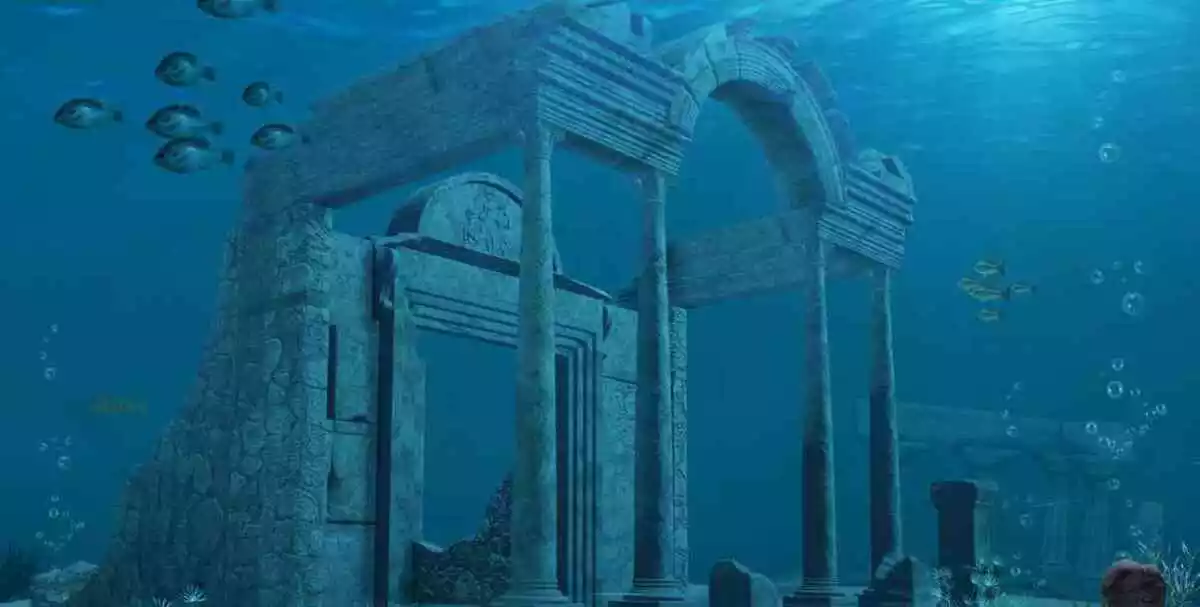
Lost City of Atlantis: The Truth About Plato's Island
James Cameron tried to find its location in Atlantis Rising

The myth of the lost city of Atlantis is often considered the greatest mystery of all time. A legend that appears for the first time in writing (and not orally) by the hand of Plato and that would tell us about an island that would have been engulfed by the sea.
In popular culture, there are multiple references to Atlantis, whether in literature, television or cinema. We can find, for example, Atlantis by Walt Disney, which brings the myth closer to the youngest of the house through cartoons. There are also documentaries such as Atlantis Rising by James Cameron, which was launched in National Geographic Channel, and which tried to answer the classic question of Atlantis' location.
[predef]mh-general-eng-489[/predef]
The origin of the myth of the lost city of Atlantis
As a brief definition, we could say that Atlantis is a mythical island that would have been engulfed by a cataclysm around 9600 BC. It is said that Atlantis was already a great civilization at the time of the foundation of Athens, which invites us to think about its great antiquity.
According to the story of the Greek philosopher Plato, four centuries before our era, the kingdom of Atlantis was enveloped in a deluge of water because its inhabitants had sunk in corruption and materialism. After this cataclysm, the mythical island was forever erased from the maps of the world.
The theory of which catastrophe caused the destruction of the Atlantis civilization is varied, ranging from a volcanic eruption to the ten plagues of Egypt, although these assumptions are not unanimous.
As we said at the beginning of the article, the island mysteriously vanished into the oceanic abyss and what makes us think that it really existed is a text by Plato. The philosopher mentions it in two of his Dialogues (Critias).
There are defenders who think that Atlantis is a real story, assuming that more or less deformation of these facts by the own interpretation of the Greek author. However, there are also those who think that Plato's story is pure fiction and that it was only an allegory that would have allowed him to criticize Greek society and its mistakes. A warning to change before society was enveloped in the waves.
How was the city?
The king of Atlantis is Atlas, a son of the sea god Poseidon and a young mortal, Clito. The island would be larger than "Libya and Asia united" (and which wanted to "subdue Europe and Asia") would be divided into ten kingdoms ruled by Atlas and his nine brothers and then by their descendants. Each kingdom has its own capital, and the mother city is situated around a mountain, is circular and is surrounded by a navigable moat.
Atlantis would be rich in natural resources, including a mysterious metal, the orichalcum (a legendary metal alloy of copper and zinc), and although it was an extremely rich island but could not be self-sufficient and imported certain products, which led Atlantis to be in contact with other cultures through trade. The Atlantean religion had as its epicenter Poseidon, the God of the sea and father of the royal dynasties. Among its rites was the annual sacrifice of a bull on an altar.
With the passage of time, the Atlanteans, that is, the inhabitants of Atlantis (with a reputation for being very advanced warriors in both architecture and navigation) became increasingly corrupt, used weapons and conquered a large part of the neighboring continents; according to legend, Athens is the only capable state that has managed to oppose its armies.
Where is Atlantis?
According to Plato's texts, the island is beyond the columns of Hercules (present-day Gilbratar). In general, the Spanish coasts are closely linked to Atlantis, and depending on the source we locate it along the Cantabrian coast, in the south of the country, or even near the Canary Islands.
The Greek philosopher also evokes a very complex hydraulic system, which leads to thinking that there are locations that may resemble Plato's description: the island of Malta, the Bahamas, Cuba, Costa Rica and the island of Santorini.
In the 1960s, archaeological discoveries in the Aegean Sea led the Greek archaeologist Angelos Galanopoulos to formulate what remains the most credible hypothesis about Atlantis. He believed that around 1500 B.C. the island of Santorini was devoured by a gigantic volcanic explosion, which had to destroy all civilization in the Greek islands, the east coast of Greece and northern Crete. And that this very real cataclysm could be the catastrophe that destroyed Atlantis. However, the figures do not add up, as it happened thousands of years after the date cited by Plato.
Atlantis Rising, by James Cameron
For centuries Atlantis has served as a point for writing fiction stories, research or essays in general. For example, Francis Bacon uses the idea of Atlantis to write a utopian book that defines the politics of the perfect constitution called 'New Atlantis'. It is inspired by Plato's narrative and represents a society of perfect philosophers and scientists on an imaginary island of Bensalem.
In recent years, we must point out that in 2017, James Cameron's Atlantis Rising, a documentary about Atlantis shot in Sicily, Sardinia, Malta, Santorini, and the Spanish coasts, in which a team of experts went in search of the truth about the myth of the disappeared city. In this way, the team answered the question of where Atlantis was with the Mediterranean Sea as its main axis.
The documentary, made for National Geographic, proposed new theories about the possible location of the sunken island, as well as the causes that made it disappear from the earth more than three millennia ago.